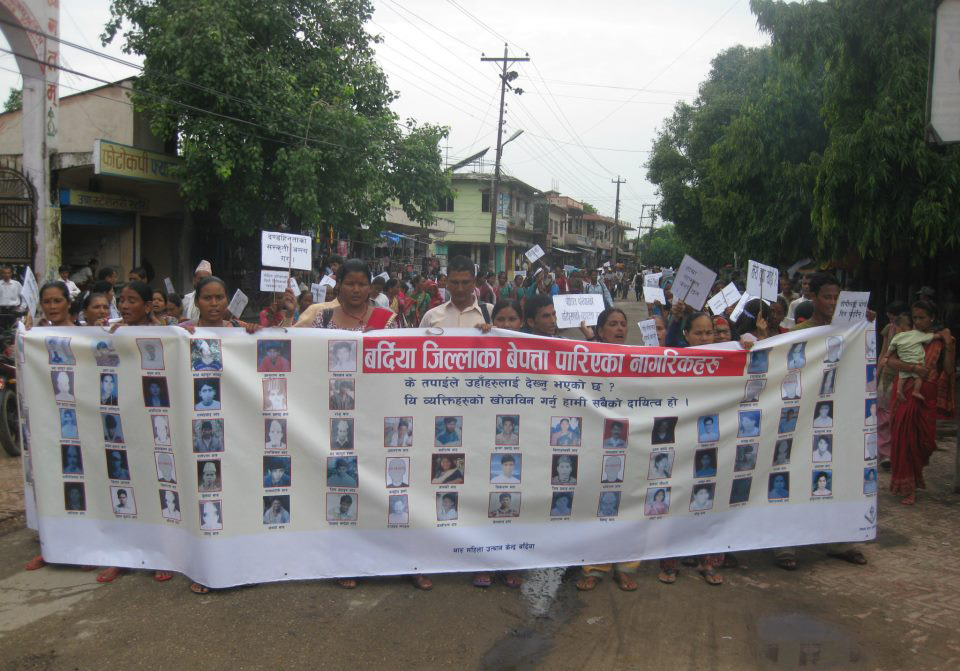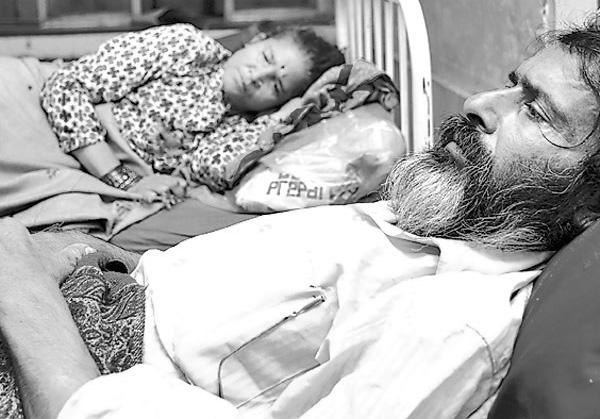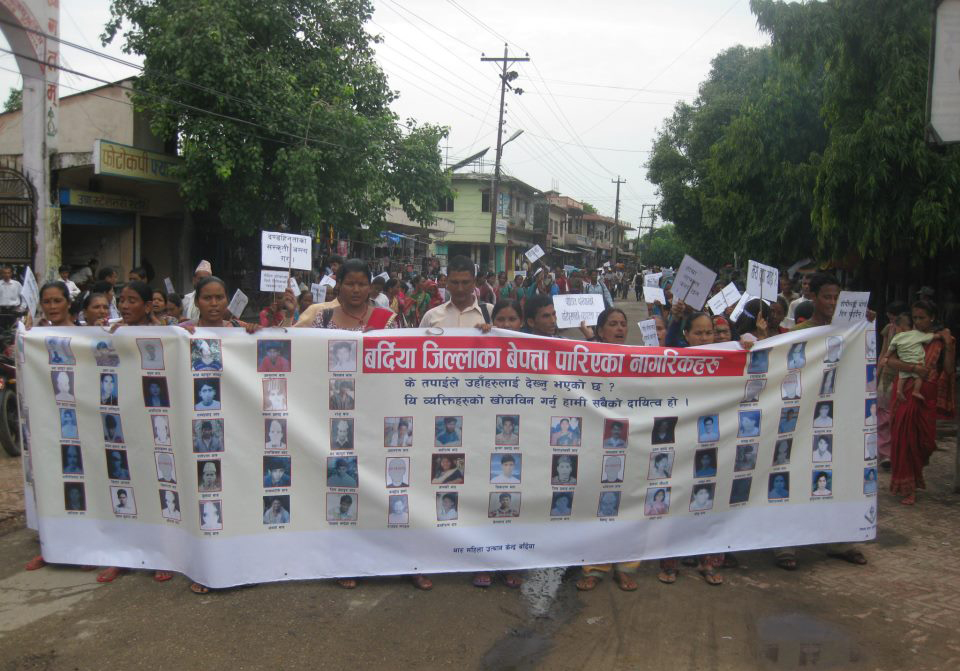
Feb 11, 2014 | News
The personal decision of Khil Raj Regmi to resign and not return to his post as Chief Justice safeguards the independence of the judiciary and maintains the rule of law in Nepal, the ICJ says.
Caretaker Council of Minister Chairman Khil Raj Regmi announced this afternoon that he would not return to his former post of Chief Justice after acting as the Chairman of the Council of Ministers since March 2013.
“Khil Raj Regmi’s decision is one that will help to preserve the Supreme Court’s hard-earned reputation as an independent institution,” said Ben Schonveld, ICJ’s South Asia Regional Director.
International standards, including the International Covenant on Civil and Political Rights (ICCPR) and the UN Basic Principles on the Independence of the Judiciary, clarify that all governmental officials and institutions as well as judges must respect and preserve the independence and integrity of the judiciary.
The 2007 Interim Constitution of Nepal enshrines guarantees for the independence of the judiciary and contains safeguards for the separation of executive, legislative and judicial powers.
Article 106 of the 2007 Interim Constitution explicitly bans sitting and retired judges from assuming any appointment in government service apart from a role in the national human rights commission.
To enable former Chief Justice Regmi to act as caretaker Prime Minister, the President amended several provisions of the Interim Constitution, including Article 106.
These amendments were made in contravention of the Constitution, which required a two-thirds majority of a sitting Parliament.
“The return of Khil Raj Regmi to the post of Chief Justice would have significantly undermined the appearance of independence of the Supreme Court and the judiciary as a whole,” Schonveld added.
The Bangalore Principles of Judicial Conduct clarify that judges must not only be free from any inappropriate connections with the executive and legislative branches of government but also must appear to a reasonable observer to be free therefrom.
The ICJ applauds the personal decision of Chairman Khil Raj Regmi to resign as Chief Justice.
The ICJ calls on the new Government under the leadership of the Nepali Congress Chairperson, Sushil Koirala as well as the other elected political parties of the Constituent Assembly to honour the commitments made during the election and work to end impunity for gross violations of human rights.
Contact:
Ben Schonveld, ICJ South Asia Director, (Kathmandu); t: 977 9804596661; email: ben.schonveld(a)icj.org
Govinda Bandi Sharma, ICJ Senior Legal Adviser, Nepal (Kathmandu), t: +977 9851061167; email: govinda.sharma(a)icj.org
Sheila Varadan, ICJ Legal Adviser, South Asia Programme (Bangkok), t: +66 857200723; email: sheila.varadan(a)icj.org

Jan 31, 2014 | News
The Parliament of Nepal should reject the Ordinance on Truth, Reconciliation and Disappearances tabled this week and enact a new transitional justice mechanism that complies with international human rights law, the ICJ and HRW said today.
The Ordinance on Disappearances, Truth and Reconciliation Commission, signed by the President on 14 March, 2013, was declared unconstitutional and in violation of international human rights law by the Nepali Supreme Court on 2 January, 2014.
In a directive, the Supreme Court ordered the Ordinance be repealed or amended significantly to bring it in line with Nepal’s obligations under national and international law.
However, on 27 January, the Government reintroduced the Ordinance with no amendments in the meeting of the Legislative-Parliament – in direct contravention of the Supreme Court’s orders.
“Tabling a rejected version of the Ordinance after the Supreme Court’s landmark judgment on transitional justice is contemptuous, and raises serious concerns over the government’s respect for the rule of law in Nepal,” said Ben Schonveld, ICJ’s South Asia Director.
The Interim Constitution says clearly that the Supreme Court’s rulings are binding on the Government of Nepal. Article 116 of the Interim Constitution states that any order issued by the Supreme Court in the course of the hearing of a case shall be binding on the Government of Nepal and all its offices and courts.
The Supreme Court has previously held that any mechanism for transitional justice must conform with international standards, lead to accountability for serious human rights violations, and ensure victims their right to remedy and reparations, which includes the right to truth, justice, and guarantees of non-recurrence.
In its 2013 briefing paper, “Authority without Accountability,” the ICJ expressed concern over multiple provisions in the Ordinance, including amnesty provisions, which would entrench impunity for gross human rights violations in Nepal.
Any amnesty for gross human rights violations would add another layer to the complex web of immunities, documented in the report, that continue to shield those responsible for human rights abuse from accountability in Nepal.
“The Parliament of Nepal should strongly reject the tabled Ordinance and the government must expeditiously implement the Supreme Court’s directive,” said Meenakshi Ganguly, South Asia Director at Human Rights Watch. “The ordinance in its current form violates undertakings made as part of the peace agreement, and essentially strips victims of serious rights abuses of a proper chance at justice.”
The rights groups called on the government to implement the Supreme Court’s ruling, creating a new transitional justice law that, at a minimum:
- Establishes two separate transitional justice commissions: a “Truth and Reconciliation Commission” and a “Commission of Inquiry on Enforced Disappeared Persons;”
- Criminalizes the act of enforced disappearance in accordance with the definition set out in the International Convention on the Protection of All Persons from Enforced Disappearance and ensures that it is punishable with penalties commensurate with the gravity of the crime;
- Criminalizes other serious crimes, including crimes against humanity, and other crimes under international law, in a manner that is consistent with international law;
- Prohibits amnesties for gross human rights violations or crimes under international law;
- Does not contain a limitation period on the reporting of violations and ensures there are no time limits on the prosecutions of of serious crimes including enforced disappearance, other crimes under international law including, war crimes, and crimes against humanity;
- Ensures that the composition and structure of the Commissions complies with international standards. In particular, there should be a fair vetting system which aims to ensure the impartiality of the commission members and to ensure that no individuals against whom there are credible allegations they have committed human rights abuses are selected as Commissioners;
- Requires the necessary legal and institutional measures to be taken to enable and ensure the establishment, adequate resourcing and maintenance of effective victim and witness protection mechanisms; and
- Establishes and requires other necessary legal, administrative, institutional, or other arrangements for an effective reparation program.
Contact:
In Bangkok, Sam Zarifi: +66-857200723; or sam.zarifi(a)icj.org
In Kathmandu, Ben Schonveld +977-9804596661; : ben.schonveld(a)icj.org
Read also: ICJ releases new report on the struggle for justice in Nepal
The report Authority without accountability: the struggle for justice in Nepal can also be downloaded below:
Nepal-SUMMARY-Authority without Accountability-Publication-report summary-2012 (full text in pdf)
Nepal-FULL-Authority without accountability-publications-report-2012 (full text in pdf)

Aug 30, 2013 | News
The ICJ is highly concerned by the deteriorating health of Nanda Prasad and Gangamaya Adhikari who are on hunger strike, protesting the failure of the state to investigate and prosecute the 2004 killing of their son Krishna by Maoist insurgents.
Ben Schonveld, the South Asia Director of ICJ said: ” Mr and Mrs Adhikari are just one of thousands of families in Nepal who are asking for something very simple: justice. They are not looking for more commitments or words. They are asking the State of Nepal to obey its own laws and investigate and punish very serious crimes (committed by both sides to the conflict) that violate international human rights law; laws that Nepal has repeatedly committed itself to uphold.”
Contact:
Ben Schonveld, South Asia Director, t: +977 9804596661; email: ben.schonveld(a)icj.org
Photo by eKantipur.com

Aug 30, 2013 | News
On the 30th annual International Day of the Disappeared, the ICJ urged the Nepali Government to act immediately to disclose the fate and whereabouts of “disappeared” persons and to provide accountability for the perpetrators of these gross violations of human rights.
The systematic practice of enforced disappearance during Nepal’s 1996-2006 armed conflict was among the worst anywhere in the world, the ICJ says.
The fate and whereabouts of more than 1,300 possible victims of enforced disappearance are still unknown.
To date, not one individual suspected of criminal responsibility for serious human rights violations or crimes under international law committed during the conflict has been brought to justice.
“The Government must meet its human rights obligations”, said Ben Schonveld, ICJ’s South Asia Director. “Ending impunity, ensuring accountability, and strengthening the rule of law are essential for a durable transition from armed conflict to sustainable peace in Nepal”.
On 21 November 2006, the Government of Nepal and Communist Party of Nepal (Maoist) signed the Comprehensive Peace Agreement (CPA), committing to investigate and reveal the fate of those killed or disappeared during the armed conflict within 60 days.
Both parties promised they would “not protect impunity” and vowed to safeguard the rights of families of the “disappeared.”
Almost seven years later, the promises made in the CPA have still not been fulfilled, the ICJ says.
Instead, the Government has actively protected and even promoted those suspected of committing human rights violations.
On 14 March 2013, Nepal’s President promulgated an Ordinance to establish a Commission on Investigation of Disappeared Persons, Truth and Reconciliation to investigate human rights violations committed during the armed conflict.
However, the establishment of the commission was temporarily halted after the Supreme Court issued a stay order in April following legal challenges.
The proposed commission is not in compliance with international law and standards on commissions of inquiry to effectively discharge Nepal’s duty to provide remedy and reparation to victims in a number of respects.
First, the process of the appointment of the Chairperson of the Commission does not ensure independence and impartiality.
Second, the Commission has wide discretion to recommend amnesty for crimes under international law, including enforced disappearance, to those who repent.
When combined with the fact that the crime of enforced disappearance is not yet a distinct offence punishable under the law of Nepal, there are grounds for real concern that impunity for the hundreds of enforced disappearances carried out during the course of the conflict will continue.
“The framework for the Commission set out in the Ordinance was the result of a bargain between the political parties”, Schonveld added. “The Commission seems designed to enable those suspected of criminal responsibility to avoid accountability for human rights violations and crimes under international law committed over the course of Nepal’s decade-long conflict”.
The ICJ urges the Government of Nepal to:
1. Withdraw the Ordinance, or establish a mechanism for its review and amendment, which includes inclusive consultation with victims of conflict related human rights abuses and representatives of civil society, with the aim of ensuring that the Commission established is consistent with international law and standards;
2. Promptly accede to the UN International Convention for the Protection of All Persons from Enforced Disappearance;
3. Ensure that enforced disappearance, as defined under the International Convention for the Protection of All Persons from Enforced Disappearance, is included as a distinct offence and is punishable by penalties that are proportionate with its gravity criminalized under domestic law;
4. Respect court orders calling on the police to investigate human rights violations and crimes under international law and, if there is sufficient admissible evidence, prosecute those suspected of criminal responsibility in trials that meet international due process standards;
5. Ensure that victims of enforced disappearance, other human rights violations and crimes under international law have access to effective remedies and receive adequate reparation, including appropriate compensation, restitution, rehabilitation and measures of satisfaction;
Contact:
Ben Schonveld, ICJ South Asia Director, (Kathmandu); t: 977 9804596661; email: ben.schonveld(at)icj.org
NOTES:
Enforced disappearance occurs when a person is arrested, detained or abducted by an agent of the State and then officials refuse to acknowledge the deprivation of liberty or conceal the fate or whereabouts of the “disappeared” person.
These acts remove an individual from the protection of the law, leaving the individual at the mercy of his or her captors.
Enforced disappearance violates many rights of the victims and their families alike, which are guaranteed under the under the International Covenant on Civil and Political Rights (ICCPR), which Nepal, as a State Party, is obliged to respect.
The UN General Assembly has described enforced disappearances ‘an offence to human dignity’ and a grave and flagrant violation of international human rights law.

Aug 13, 2013 | News
The ICJ today called on the Nepalese Government to release the body of Tibetan Monk Karma Nyidon Gyasto to the Tibetan community to carry out his last rites in accordance with Nepal’s laws and international obligations.
“We are deeply concerned about this rejection of Nepal’s laws and its international obligations,” said Asia Director Sam Zarifi.
On 5 August 2013, a Tibetan refugee, Karma Nyidon Gyasto self-immolated at the Boudha Stupa, in Kathmandu. He was taken to Tribhuvan University Teaching Hospital, where he was later declared dead. His body is apparently being held in the hospital’s mortuary.
On 12 August 2013, the Tibetan Refugee Welfare Office, registered an application to the Office of the Chief District Officer in Kathmandu to perform funeral rites. The Tibetan Refugee Welfare Office is acting on behalf of Gyatso given the lack of clear legal status of the resident Tibetan refugee community.
This is the second protest by self-immolation in Nepal. The first was in February 2013. In that case the government refused to hand over the body for funeral rites.
The refusal to hand over the body contravenes Nepal’s national laws.
The Interim Constitution, under Article 23 guarantees the right to religion, including the right to practice and perform religious rites.
Furthermore Article 17 provides that every community in Nepal has the right to preserve and promote its culture.
The action also contravenes Nepal’s international obligations.
Article 18 of the International Covenant on Civil and Political Rights (ICCPR) provides for the right to a religion or belief of his choice, and freedom, either individually or in community with others and in public or private, to manifest his religion or belief in worship, observance, practice and teaching.
Furthermore, General Comment No 22 on Article 18 of the ICCPR states that this right includes ritual and ceremonial acts.
Under the Covenant, the Government of Nepal is obliged to respect and ensure the religious and cultural rights of the Tibetan refugee community, who have a legitimate right to receive the body and hold a funeral according to their religion and culture.
CONTACT:
Sam Zarifi, ICJ Asia-Pacific Director, (Bangkok), t: +66 807819002; email: sam.zarifi(a)icj.org









